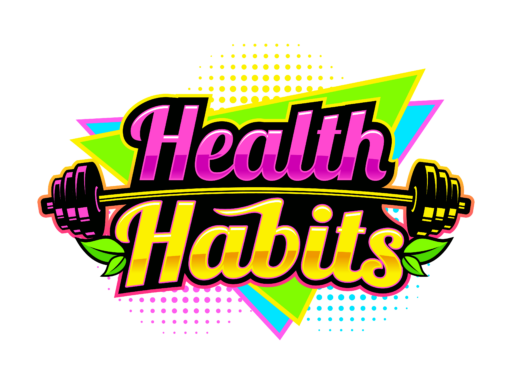Preface: This article is part of a series on ingredients that can improve focus and energy. Check out our other articles on kratom for energy and modafinil.
What Is L-Theanine?
Theanine is a naturally occurring amino acid, and its most common chemical form is L-theanine. Since it’s an amino acid, unlike some of the other nootropics we’ve looked at, there’s very little risk and downside to using l-theanine. It has no “pharmacological” effects, meaning it’s not a “drug” in the traditional classification.
This makes it generally safe. (Of course, you should still talk to your doctor before taking anything.

L-Theanine For Focus
L-theanine naturally occurs at high doses in tea. A cup of black or green tea has about 20 mg. From this, researchers began to look at the effects of the ingredient and found that at higher doses (much higher than in tea), l-theanine shifted our brain waves toward an alpha frequency.
At all times brain waves are in varying places. The classifications of frequencies are as follows from slowest to fastest:
Delta – deep sleep
Theta – light sleep
Alpha – a resting state we can get in during meditation
Beta – everyday waking brain
Gama – high alertness
L-theanine shifts the brain into an Alpha frequency, one of relaxation, without causing any drowsiness. Combined with caffeine, as is common, then you have a combo that provides pure alertness via the caffeine and improved focus as if you were meditating and in the present moment with l-theanine.
In marketing terms, that’s why l-theanine is promoted to “reduce caffeine jitters.”
L-Theanine at Modest Doses
One study looking at l-theanine at moderate doses, like those found in supplements and tea (the study used 50mg), still showed significant effects on general focus. By focus, again, think about a meditative-like effect where you can easily fend off distractions, a hugely valuable trait in our distraction-laden world.
L-Theanine For Sleep
An interesting paradox with l-theanine is that it improves focus but it can also help us sleep. Both can be explained by the shift towards an alpha brain wave state. If you’re in ‘beta,’ as you are throughout the day, you have to move through alpha before you can fall asleep. In theory, then, l-theanine could be added to our list of strategies to fall asleep faster.
The studies that look at this use much higher doses, 450-900mg. However, it stands to reason that smaller doses will still help. This is a great opportunity for self-experimentation.
It shares this paradox with kratom, which can be useful for sleep and useful for focus, albeit for completely different reasons.
L-Theanine and Melatonin
L-Theanine is often used in melatonin supplements, and promoted as a sleep supplement stack. While they’re okay to combine together, we’ve written previously about why melatonin supplementation isn’t a great idea. However, if you are going to supplement with melatonin, go for as small a melatonin dose as possible, and offset it with a higher l-theanine dose.
L-Theanine and Alcohol
L-theanine also interacts in ways that could help prevent liver injury and cure hangovers, making it a popular ingredient in the type of “hangover cure” products that pop up everywhere from supplements lines to smoothie shops.
In mice studies, l-theanine proved effective against reducing alcoholic-related liver injury. This class of research suggests l-theanine may be helpful for alcoholics, and even helpful in the alcohol-withdrawal process.
L-Theanine and Hangovers
L-theanine may help hangovers, but likely indirectly. Remember, hangovers are mainly caused by dehydration. By that time the alcohol is already metabolized. So if you want l-theanine to support hangovers, you have to take it before or while you’re drinking. By the next morning the damage on that front is done, and you should steer towards hydration-enhancing molecules like good ‘ol water and some electrolytes if you’re feeling fancy.
That said, because l-theanine helps with focus, it can indirectly make you feel better with a hangover. But, if you know you’re going out, l-theanine can limit the damage if taken beforehand.
Best Way to Take L-Theanine
You’ll find l-theanine in all kinds of fancy nootropic products that are mostly garbage and l-theanine is one of the saving graces of the product. So you’ll be paying a premium for mostly garbage, and then some l-theanine.
So you can buy l-theanine capsules or powder by itself. This allows you to isolate the ingredient and see how you feel on it, and also gives you an easy way to shift the dose.
Almost every capsule product will be 150-200mg per capsule, which is not ideal. To test out smaller doses, you’ll have to go with a powder product.
Nootropics Are Mostly Out of Control
L-Theanine is one of the few marque nootropic ingredients that continues to show more promise and efficacy with more research. A lot of nootropic products, once with annoying titles with ‘brain’ in them, are mostly a waste of money. Or at least, way more money than you would spend if you just got the ingredients that actually work.
In general when looking at products, like a good scientist you’ll want to isolate variables, before getting fancy. If there are 20 different “nootropic” ingredients on the label, at least 16 of them are doing pretty much nothing.
For other ingredients we’ve looked at that can help focus, check out our articles on kratom for focus and modafinil for focus.

3 Pingbacks